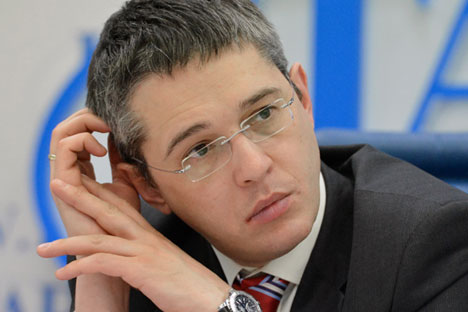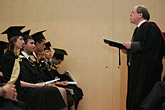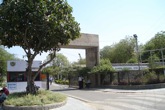Mutual degree recognition agreement with India to be signed by December

Alexander Povalko, Russia’s deputy minister of education and science. Source: Yuri Mashkov / TASS
A major cause of concern for Indian medical students studying in Russia is that the Medical Council of India does not recognise qualifications from non-English speaking nations. The two countries have been in lengthy negotiations over mutually recognising university degrees. Alexander Povalko, Russia’s deputy minister of education and science was recently in India to iron out thorny issues. He spoke to RIR about the future of Russia-India cooperation in education.
During your trip to India you met with the Indian ministers of science and technology and education. Did you manage to make progress on the agreement on reciprocal recognition of university diplomas?
Unfortunately, we’re not yet ready to sign anything. But from what I gathered, our Indian colleagues grasp the developing situation and believe that it’s very important to solve this issue.
Right now we’re running into exceptionally technical complexities. They relate to the need to correlate Russian and Indian educational programs, and we’re not even talking directly about universities. For example, we have an 11-year education system in general schools, while in India it’s a 12-year system.
We’re nevertheless expecting to be able to sign an agreement by December.
What educational projects do you currently consider interesting for Russia and India to implement jointly?
First, there’s attracting Indian students to study in Russia. This is a concrete goal that we have even though this issue is largely intertwined with the agreement on mutual recognition of university degrees.
In addition, India is actively developing. Russian universities can transfer technologies they already have and conduct joint research projects. I think these two areas are the most promising.
According to recent calculations, up to 1,500 Indian students annually go to Russia to study. You mentioned plans to increase this number. How do you precisely plan to do that?
These days in Russian universities, the number of programs offered in English is significantly expanding. In the past, most students entered preparatory departments, studied Russian for a year or more, and only then could they start their studies, which took place in Russian. So we’re getting rid of the language barrier.
Foreign students make up 2 percent of the total number of students. We need to substantially raise this number.
What do you think the proportion of foreign students should be, and how long do you think it will take to reach the goals that are set?
I think that foreign students should be 20 percent of the total number of students. If we’re talking about the leading universities, they have about five years to achieve this goal. India is a high-priority focus.
Has the number of scholarships for foreign students increased over the last year?
Yes, significantly. This year there were 15,000 scholarships for foreign students covering the costs of university studies, compared to 10,000 a year earlier.
All rights reserved by Rossiyskaya Gazeta.
Subscribe
to our newsletter!
Get the week's best stories straight to your inbox

